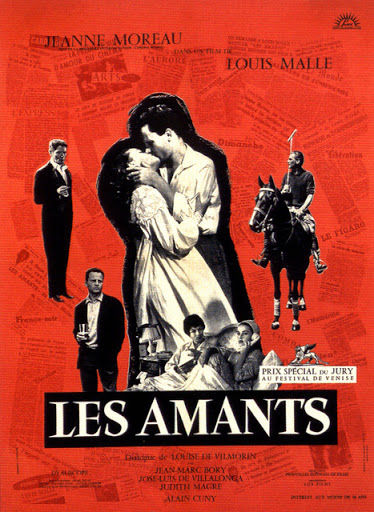Emmanuelle Riva x 3...
- Ravi Swami
- Jul 29, 2022
- 3 min read
Alain Resnais' 1959 film "Hiroshima Mon Amour" rounds off a trio of films that I've watched starring Emmanuelle Riva, an actress I knew little about previously, but I have the feeling that her name *should* have been familiar since Resnais' film is considered a classic.
My reasons for avoiding it have more to do with the presupposition that it was a slushy romance that might appeal more to a female audience, besides being one of those critic's choice "must see" films to strike off a bucket list.
I has happy to be proved wrong on all counts and was delighted to discover that it is much more than that.
I'd watched Antonio Pietrangeli's 1960 film "Adua and Her Sisters" last year and Riva's performance in that could not be more different to her breakthrough role in "Hiroshima Mon Amour" since she is playing one of a group of Italian prostitutes who decide to quit the streets to set up a restaurant. Not being familiar with her meant that I just assumed that she was being a very good ensemble support for Simone Signoret's lead role as "Adua", but it remains an affecting and stand-out role in spite of that.
This was followed in my viewing a year later with Michael Haneke's "Amour", 2012 resulting in 3 films that span her career from the very beginning through to her performance in Haneke's film.
It's been noted that Riva was quite picky in choosing her film roles, favouring directors over subject and this is borne out to some extent in her filmography.
"Hiroshima Mon Amour", adapted from the novel by Margeurite Duras, is about a French actress on a film shoot in the town destroyed by the first atomic bomb who has a passionate casual fling with a Japanese man. Neither character is named, as if to reinforce the nature of their affair, and the film's opening scenes are a montage of close-ups of their love making intercut with newsreels made immediately after the devastating destruction of the city.
"Elle" ("Her"), Riva's character, realises that she is falling in love but is unsure for reasons that form the film's second act where "Lui" ("Him" and played by Eiji Okada) interrogates her about her past.
Using evocative flashbacks, Resnais details her life as a young woman in rural France during the Nazi occupation whose first love is a German soldier on the run from the resistance. They enjoy secret trysts in the woods and other locations before her lover is shot and killed as she runs to meet him for a romantic rendezvous and then further devastation is wrought on her when her family and the village community cut off her hair and lock her in a cellar as a punishment for being a collaborator.
At the end of the war she leaves Nevers, her town, for Paris, vowing never to return and what follows is an itinerant life as an actress and many casual affairs but no desire to settle down with anyone, which explains why she is in Hiroshima.
Her lover has feelings for her and pleads for her to remain and she is torn between escaping and staying.
Resnais uses the location of Hiroshima as a metaphor the psychological devastation wrought by war and contrasts this with the post-war optimism of her Japanese lover, offering "Elle" the chance to rebuild her life, however, the scars remain so deep that like Hiroshima itself the causes are not something that can be easily forgotten or forgiven.
"Lui" pursues her through the city as she makes her way to a train station to leave Hiroshima forever, before relenting and returning to her hotel room, where the two lovers confront each other.
The film ends as "Elle" calls him "Hiroshima" to which he responds by calling her "Nevers" and they embrace.
For a first-time role, Riva delivers an astonishingly touching and nuanced performance as "Elle" that required her to perform in some quite intimate scenes framed by some beautiful cinematography that results in frames that verge on being abstract and dreamlike in terms of design.
Resnais manages to capture the anticipation of young love beautifully in the flashback scenes, which make what follows all the more shocking - to all intents and purposes "Elle's" transformation into the confident and independent woman we see in the film's first act would suggest that she has buried the emotional turmoil of her past, but this proves not to be the case.
"Hiroshima Mon Amour", Dir: Alain Resnais, 1959
Criterion Channel












great film. In my top 20 ever